
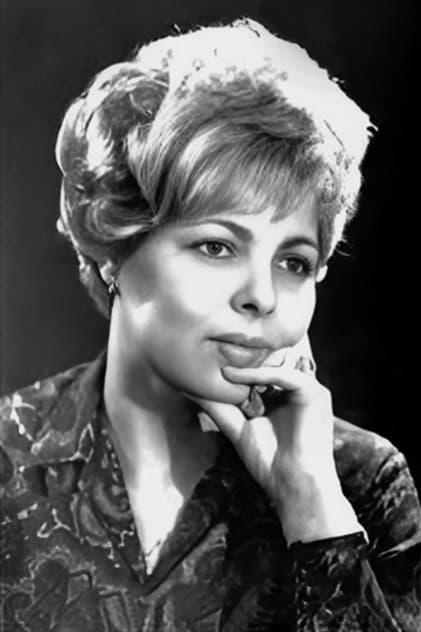
Djamila (Djohra Bachene)
Born: May 2, 1930
Died: October 29, 2019
in Aït Bouhini, Algeria
Died: October 29, 2019
in Aït Bouhini, Algeria
Djamila, whose real name is Djohra Bachene, is an Algerian actress, presenter and singer of traditional Kabyle music. She was born on May 2, 1930 in Aït Bouhini, Algeria, and died on October 29, 2019 in Algiers.
Djohra Bachene, her real name, was born on May 2, 1930 in Aït Bouhini (Yakouren). Orphaned by her father at the age of 12, Djamila benefits from having met the Kabyle singer Chabha who takes her under wing and introduces her to the world of radio. It was in 1951 that she took her first steps on Channel II, an Algerian radio station in the Amazigh language. She will then join the Urar n’lkhalath women’s choir alongside Cherifa, Hnifa, Nouara and other great Kabyle singers. She wrote and performed many songs in the Kabyle musical style “Achewiq”.
In addition to her musical and radio career, Djamila began a career as an actress in cinema and television in 1962. She appears in particular in the films The Forgotten Hill by Abderrahmane Bouguermouh, Le Vent des Aurès by Mohammed Lakhdar-Hamina and several TV films alongside Mohamed Hilmi. She died on October 29, 2019 in Algiers.
Djohra Bachene, her real name, was born on May 2, 1930 in Aït Bouhini (Yakouren). Orphaned by her father at the age of 12, Djamila benefits from having met the Kabyle singer Chabha who takes her under wing and introduces her to the world of radio. It was in 1951 that she took her first steps on Channel II, an Algerian radio station in the Amazigh language. She will then join the Urar n’lkhalath women’s choir alongside Cherifa, Hnifa, Nouara and other great Kabyle singers. She wrote and performed many songs in the Kabyle musical style “Achewiq”.
In addition to her musical and radio career, Djamila began a career as an actress in cinema and television in 1962. She appears in particular in the films The Forgotten Hill by Abderrahmane Bouguermouh, Le Vent des Aurès by Mohammed Lakhdar-Hamina and several TV films alongside Mohamed Hilmi. She died on October 29, 2019 in Algiers.
Movies for Djamila (Djohra Bachene)...
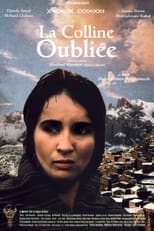
Title: The Forgotten Hill
Released: May 19, 1996
Type: Movie
At the outbreak of the Second World War, two friends, Mokrane and Menach, abruptly interrupt their studies and return to their remote native Kabylian village of Tagsa. While waiting to be drafted into the French Army they have time to woo. Mokrane falls for beautiful Aazi and soon marries her only to find out that she can bear no child. Menach, on his part, is stongly attracted to Davda, but the latter is already married to a rich merchant...Happiness does not seem to be in store for the two former students...

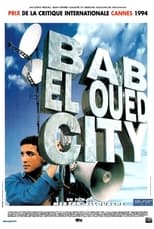
Title: Bab El Oued City
Character: Lalla Djamila
Released: November 16, 1994
Type: Movie
Bab El-Oued, a popular district of Algiers, in 1989, a few months after the riots. Boualem works at night in a bakery and steals the loudspeaker that was installed on his roof and was broadcasting the Imam's word... therefore preventing him from sleeping. This blunder is taken as a pretext by the Islamists to put the district under their control...

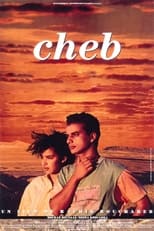
Title: Cheb
Character: La mère de Merwan
Released: June 5, 1991
Type: Movie
After a conviction for theft, Merwan was expelled from France, where he had lived since the age of one, to Algeria, his country of birth. In a foreign country of which he knows neither the language nor the customs, he finds himself stripped of his belongings and on the street.

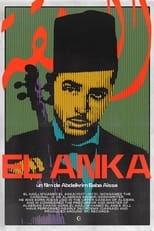
Title: العنقة (El Anka)
Character: Self
Released: January 1, 1981
Type: Movie
1/4 - In 1925, the young M’hamed El Anka replaced his master Nador at short notice. He realizes that he is far from mastering all the instruments of his art and begins a self-taught training program in Oud, the Arabic language, and religious singing in the hadra of Sidi Abderrahmane. 2/4 - In 1932, the young El Anka released 10 45 rpm records in Paris, including the first song from his composition "L'Exil". He is gradually “lightening” the Andalusian heritage. He made the pilgrimage to Mecca and wrote the famous song "El Mendouza". 3/4 - The 40s and 50s will confirm the maturity of the master, who consolidates the constituent elements of what is today called Chaâbi music. In the midst of the national liberation struggle, El Hadj M'hamed El Anka triumphs with the song "Youm El Djemâa". 4/4 - In 1962, El Anka sang of independence: "El hamdou lilah, mabqach listaâmar fi bledna". Activist, poet and musicologist Bachir Hadj Ali explains the artist’s exceptional style.

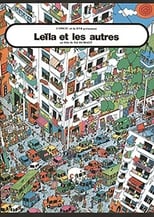
Title: Leila and the Others
Released: January 2, 1977
Type: Movie
The story of Algerian women trying to live in 1970s Algeria where the society is between conservative values and progressive modern Algeria.

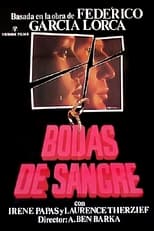
Title: Blood Wedding
Character: La fiancée
Released: January 1, 1977
Type: Movie
In a small village in southern Morocco, Amrouch cannot, because of his social position, marry the daughter of a wealthy farmer from the nearby village. Based on Federico Garica Lorca’s novel.

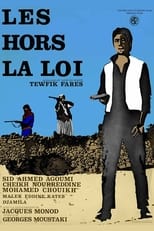
Title: The Outlaws
Character: Zhera
Released: January 1, 1969
Type: Movie
In prison in colonial Algeria, shortly after the end of the Second World War, three indigenous cellmates make out. Once free, they attack the authority represented by the triad of the boss, the gendarme and the administrator. “Living the colonial condition,” confided Tewfik Farès, “is something! It’s not sociologically or historically speaking. It’s life. And I think that’s all there in it. [...] For a hundred and thirty years, we wait. We hold back. We push back. We hope. At the same time, on different occasions, there are skirmishes, unrest.

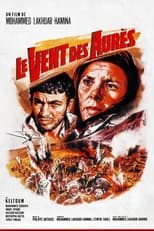
Title: The Winds of the Aures
Released: June 8, 1967
Type: Movie
Le Vent des Aurès – the first road movie of Algerian cinema – describes the transformations of the daily life of the Algerian people during the destructive French occupation, then during the war of liberation. While military repression is in full swing, a peasant woman finds herself alone in her mountain home when her only son is kidnapped by French soldiers shortly after her husband's death during a raid. One day, seeing a dead chicken, which she considers a bad omen, she decides to leave home and embarks on a painful journey through the mountains. Accompanied by a couple of chickens, she moves from one detention camp to another in a desperate search for her missing son. The film is inspired by the events experienced by the director's family.
